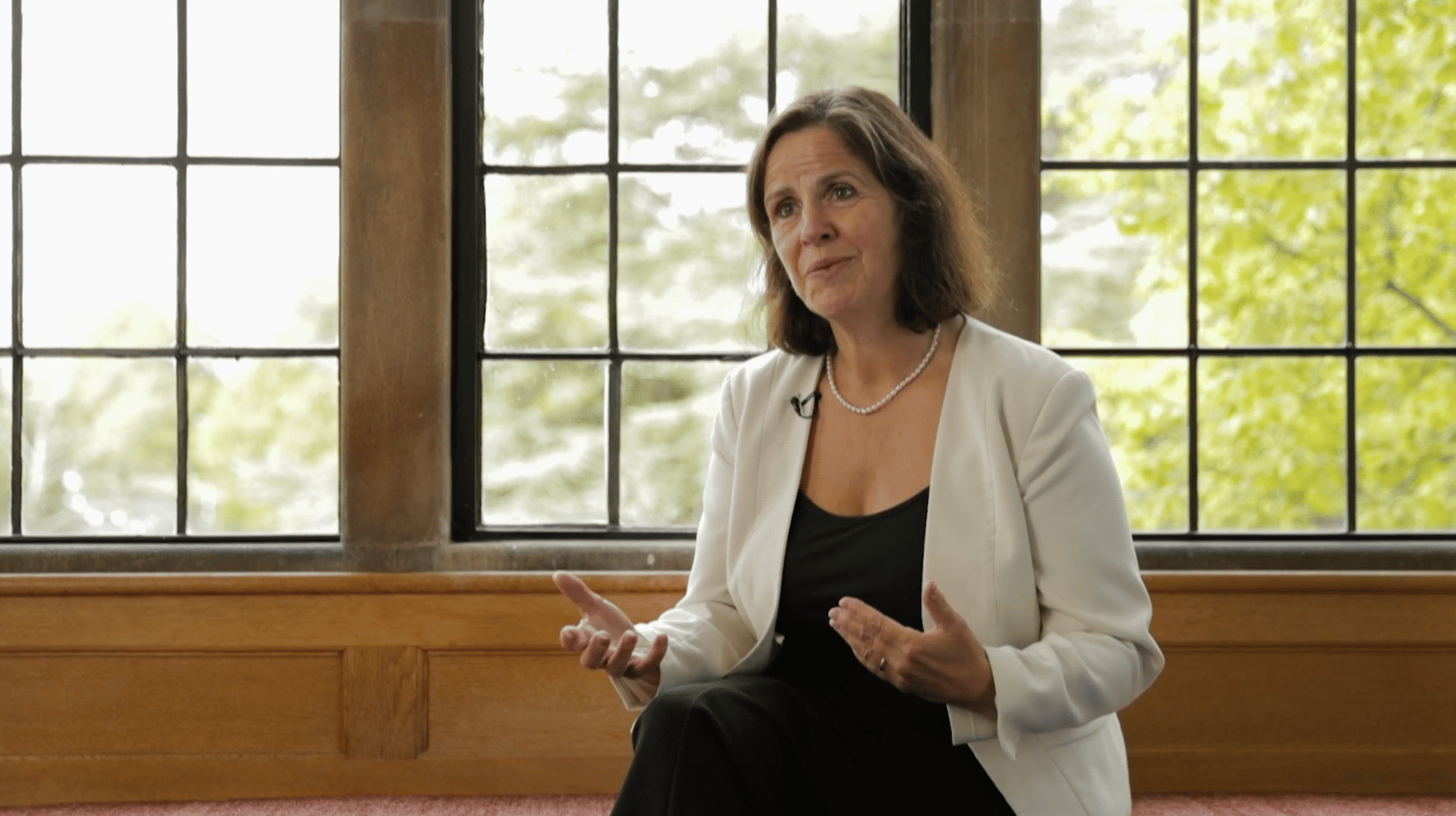Recently I was asked to reflect on how relevant a full boarding model is in today’s society. Answering this question went to the heart of our identity and educational vision.
What do we know about modern teenagers? Covid taught us how much we need people, but neuroscience tells us that children and teenagers value doing things with their friends, and indeed their friends’ affirmation, more than anything else. A full boarding ethos gives pupils the time just to be with each other that a busy day school cannot.
Very few schools, if they are honest, offer truly seven-day-a-week boarding: we do and it gives security and shared rhythms to all the pupils, however close or distant their home.Sarah Kerr-Dineen, Head
We know also that adolescence can be tempestuous at times and that teenagers need security and boundaries in order to navigate this period of their lives. The scope that our boarding ethos gives us enables an all-round vision of education through which to develop children fully in an environment where they and their friends grow up together, with clear expectations and almost limitless opportunity.
What do we know about modern boarding? We know that it comes in different guises, with schools offering more or less flexible versions of boarding. We are committed to a full boarding ethos: we have exeats, certainly, but we are either all here or all not here. Very few schools, if they are honest, offer truly seven-day-a-week boarding: we do and it gives security and shared rhythms to all the pupils, however close or distant their home. This model of boarding fosters a much more diverse pupil body from across the UK. It gives a richness to every single day in term time; the children are never lonely. Our senior pupils talk about the tolerance they learn and the deep bonds formed through shared experience.

Gone are the days of driving away at the start of term and hearing nothing until picking up your child again.Sarah Kerr-Dineen
Modern boarding has parents at its heart. Gone are the days of driving away at the start of term and hearing nothing until picking up your child again. Parents want to be connected to their children’s school, to be frequently in touch, to know the individuals in their children’s world at school. Our version of boarding means that we see many more parents than we might in a weekly or flexi-boarding school because they come to us: they take their children out with their friends, see a concert, watch a sports match, go to Chapel then go home to busy lives knowing their children are secure and engrossed. Moreover, our full boarding ethos makes our responsibility to involve parents in their children’s daily lives all the clearer. Concerts and plays are streamed so parents at a distance can join in; I go online to have informal question and answer sessions with parents wherever they are, one parent memorably joining the call on horseback.
Modern boarding must be resourced with the very best staff, who are skilled not only in academic disciplines but also in pastoral care and in their support of the co-curriculum. Given the immersive demands and opportunities of our boarding ethos for our colleagues, we are staffed by vocational educators who really get it: there is no scope for the transactional approach when you are with children from breakfast to bedtime, in classrooms, on pitches, rehearsing, going on adventures, simply enjoying their company: we are all committed to education as a transformational mission.
We seek to develop a generation of young people who can rub shoulders with anybody, who know that their responsibility is to give and to serve.Sarah Kerr-Dineen, Head
How do we ensure relevance in modern society, tucked away in our glorious town? We see through on our belief in an education that develops global contributors by engaging our children with educators from our world-leading partner institutions such as Imperial College London, the Royal College of Music and Swansea University. We promote to our pupils the purpose and value of our partnerships and outreach work, through which they work with their peers in other schools. We seek to develop a generation of young people who can rub shoulders with anybody, who know that their responsibility is to give and to serve, to continue to work hard and to learn throughout their lives, confident about how to build and sustain relationships and to put others first.
Looking ahead? It is hard to see. How the effects of the pandemic will persist in our children’s development and in society’s behaviour we do not fully know. Leaders and individuals will be confronted with challenges and choices we cannot yet see. I believe, though, that schools have a responsibility to be driven by values and integrity, and for every element of what they do to spring from a belief in the model of education they espouse, which must look up and out as much as it focuses on the here and now of school life.
So: yes. I believe that a full boarding model, thoughtfully responsive to our world and the experience of our children, is not only relevant but is newly and urgently relevant in a post-Covid landscape.